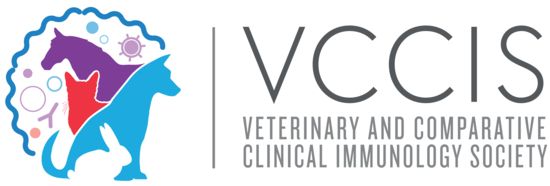Join us for our monthly virtual presentation facilitated by experts in their field.
December 12, 2025
12:00 - 1:00 pm (Eastern)
TOPIC: Why Only Some Cats Develop FIP: Lessons from the Host Genome, Transcriptome and Immune Repertoire
Presenter: Dr. Lucy Davison
This program has been approved for one (1) hour of continuing education credit in jurisdictions that recognize RACE approval.
Feline Infectious Peritonitis (FIP) is a rare consequence of infection with feline coronavirus (FCoV) and is usually fatal without anti-viral therapy. Widespread among domestic cat populations, FCoV typically causes self-limiting enteric symptoms, but in a minority of cats viral mutations, associated with replication in macrophages, result in systemic granulomatous inflammation, immune dysregulation and vasculitis characteristic of FIP. The pathophysiological basis of FIP remains unclear. This talk will present some of the work of the MASCOT consortium (Mapping Animal Susceptibility to Coronaviruses: Outcomes and Transcriptomics), investigating the role of host genetic factors in FIP risk. As well as whole genome sequencing to identify host variants associated with increased risk, transcriptomic analysis of multiple tissues including evaluation of T-cell and B-cell sequences in feline lymph nodes will be discussed.
Dr. Lucy Davison graduated from Cambridge Veterinary School, then spent several years in small animal practice. On completion of her RCVS Certificate in Small Animal Medicine, she joined the RVC to complete a PhD student in canine diabetes mellitus, then undertook residency training in Small Animal Medicine at the Queen's Veterinary School Hospital in Cambridge. After a period of time as a Clinical Physician in Cambridge, Dr. Davison was awarded a 4-year Wellcome Trust Intermediate Clinical Fellowship to join the Diabetes and Inflammation Laboratory in the Cambridge Institute of Medical Research. This position allowed her to combine veterinary clinical work with post-doctoral research in human type 1 diabetes genetics during the early post-GWAS era. Following this, she was awarded a Wellcome Trust Veterinary Postdoctoral Fellowship to undertake further post-doctoral training at the Wellcome Centre for Human Genetics at the University of Oxford, under the supervision of Prof. Chris O'Callaghan. In 2014, Dr. Davison became University Lecturer in Genetics and Small Animal Medicine and a Fellow of St Edmund's College, Cambridge and continued to combine genetics research in Oxford with veterinary clinical work in Cambridge. In December 2017, Dr. Davison was awarded a 5-year MRC Clinician Scientist Fellowship and was appointed Professor of Veterinary Clinical Genetics at the Royal Veterinary College. This position is held in continued collaboration with the Wellcome Centre for Human Genetics in Oxford and Wolfson College, Oxford.

Our monthly presentations are one hour long and cover a variety of topics we believe you will find interesting and educational. Also, all sessions are recorded and made available in our Resource Library for viewing on-demand by our members at a later time.
